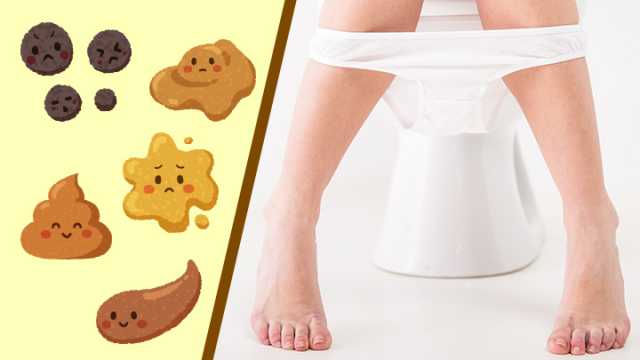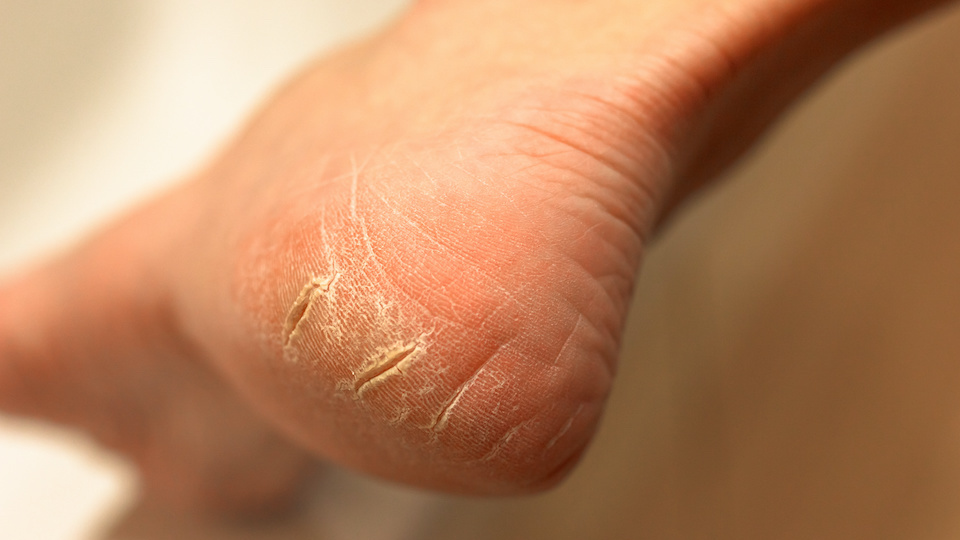Do you have common gut health issues such as digestive troubles, stomach aches, weight challenges, fatigue, skin issues, emotional issues, or food intolerances? If so, you may need to take action to heal your gut now, before impaired digestive and immune function leaves you vulnerable to illness.
Even if you consider yourself quite healthy overall, paying a little more attention to your gut health to boost immunity is likely a good idea. After all, a robust immune system doesn’t just stop common ills like colds, flu, or viruses. Studies have increasingly connected gut health with more serious chronic issues such as Alzheimer’s, multiple sclerosis, and arthritis.
Why Does Gut Health Matter For Immunity?
Simply put, a healthy gut will strengthen your immune system. This is because they are largely the same thing! The gut harbors a complex ecosystem of microorganisms, and recent science reveals that 70 to 80 percent of the cells which make up our immune system reside in the gut. Research shows the gut microbiome is in constant communication with the immune system, teaching it how to respond to toxins and pathogens. This means gut health is at the core of proper immune function.
On the flip side, an unbalanced gut is linked to many problems, such as allergies, autoimmune disease, and reduced resistance against viruses. Or, when the communication process isn’t working properly, it can lead to an attack on your own cells, resulting in an autoimmune disorder.
The immune system is better at fighting infections if the colony of gut microbes is diverse and healthy, and the digestive organs themselves are in good health. In this article, we will explore the process of healing the gut to boost immune function.
The 6-Step Process to Heal Your Gut And Boost Immunity
Try working your way through these steps to heal your gut gradually. Take it slow and listen to your body as you incorporate these simple changes.
Remove Toxins
The first step is to gradually eliminate foods and environmental toxins that are inflammatory to the gut. This helps your system decrease its workload so it can spend more energy on healing and building up healthy immunity.
In our modern world, many things knock our digestive system off balance. These include:
- A junk diet: A nutrient-poor diet full of processed foods leads to all the wrong bacteria and yeast growing in the gut, resulting in a damaged ecosystem.
- Overuse of medications: Anti-inflammatories, antibiotics, acid-blocking drugs, and steroids damage the gut or impair normal digestive function.
- Infections and gut imbalances: These include small intestinal bacterial overgrowth (SIBO), yeast overgrowth, and parasites.
- Toxic overload: Including mercury and mold toxins. Mold in your environment can contribute to SIBO. Many mainstream cosmetics and cleaning products contain chemicals that put a toxic load on the body; consider switching to natural alternatives.
- Inadequate digestive enzymes: Stress, acid-blocking medications, and zinc deficiencies can all contribute to a lack of adequate digestive enzyme function.
- Stress: Chronic stress alters your gut nervous system, creating a leaky gut, and changing the normal bacteria in the gut.
Eliminating problem foods is an excellent way to stop putting “fuel on the fire” of poor gut health. Although each of us has different triggers, wheat and dairy tend to be the source of gut issues for many. The third common problem food is sugar, as it feeds many bad bacteria and results in an inflammatory response in the body. Consider an elimination diet where you completely remove gluten, dairy, processed sugar, yeast, corn, soy, and eggs for a week or two. During this time, monitor how your gut feels and notice what happens to your other symptoms.
Heal Your Gut
There are several things you can do to start soothing and healing your gut lining and rebuilding a healthy structure. This is important to prevent or reverse “leaky gut,” a condition where toxic modern living causes increased intestinal permeability, allowing bacteria and toxins to pass through the intestinal wall and into the bloodstream. Leaky gut is believed to be an underlying cause or factor in many medical issues, including autoimmune diseases and digestive disorders.
Drink bone broth
One easy way to kick off gut healing is to introduce bone broth to your diet. Bone broth is one of the best foods for healing your gut, as it is rich in gelatin. Gelatin is essential for connective tissue function – it works to heal and seal the gut, making this broth essential for those suffering from chronic inflammation or leaky gut syndrome. The long cooking time for bone broth breaks down cartilage and tendons releasing not only gelatin but also anti-inflammatory compounds like chondroitin sulfates and glucosamine; two compounds that can be found in expensive supplements for arthritis and joint pain. These compounds are also very healing for the gut and body tissues in general.
Another healing step is to ease the burden on the gut. Try eating soothing foods such as soft foods, cooked foods, and juiced fruits and vegetables. These foods are already broken down, which helps ease the effort required for digestion and extraction of energy.
Enjoy digestive-promoting herbs
Certain herbs, called demulcent herbs or mucoprotective agents, can also reduce irritation and sensitivity in the digestive system. Slippery Elm Bark is one of these herbs capable of soothing the lining of the stomach and intestines and reducing irritation. Recent studies have shown that slippery elm bark can help treat the symptoms associated with inflammatory bowel diseases like Crohn’s disease, ulcerative colitis, and irritable bowel syndrome (IBS). Other such herbs include licorice root and marshmallow leaf or root. Supplements, tinctures, or teas containing these helpful herbs can be found at your local health food store.
Take supplements
If your immune system is already weak, it can be helpful to supplement with key vitamins and minerals that may have become depleted, such as B Vitamins, Vitamin D, and Zinc. Taking vitamins such as magnesium to support adrenal function can also be helpful as the adrenal glands can get taxed when the system is overstressed by gut health issues.
Immune 11X is an all-natural immune supplement that will help support your immune system, while promoting healthy liver and lung function. The 11 powerful ingredients in Immune 11X, including Vitamin A, Vitamin C and Zinc, will enhance innate immunity through strengthening mucosal surfaces in the nose, throat, and lungs. Try Immune 11X Free Today Here! Take one capsule, twice a day to give your immune system the support it needs and deserves.
Finally, there are a few more key supplements that are instrumental in repairing the gut lining. These are collagen, L-glutamine, and butyrate. Collagen helps make up the gut’s connective tissue—or the barrier between what’s in your gut and the rest of your body. Consuming a collagen supplement can help prevent or reverse leaky gut syndrome. L-Glutamine is also a critical building block that enables gut cells called enterocytes to regenerate more quickly, restoring the gut lining to an optimal state faster. Butyrate is another substance that helps maintain healthy gut barrier function and reduce abnormal intestinal permeability. It helps control the growth of the cells lining the gut to make sure there’s a good balance between old cells dying and new cells being formed. Consuming grass-fed butter and ghee is very helpful in increasing butyrate levels in the body.
Boost digestion
Now that we have “patched up” the machinery of the gut, we can begin to optimize its function. Some of the key substances needed for digestion include stomach acid, bile, and enzymes, but these are often in short supply when gut function is impaired. There are a few easy ways to boost the production of these important digestive factors.
One simple traditional method to improve digestion is to take bitter herbal tonics, or ‘bitters.’ When your digestion needs a little support, bitters can increase the healthy production of stomach acid and act as a digestive aid. This can not only ease indigestion, but also heartburn, nausea, cramping, bloating, and gas. Think of them as a health boost to help the body run more smoothly, from kick-starting the digestive tract to boosting the immune system. You can easily find digestive bitters at the health food store or online.
Some of the common herbs used in making bitters include:
- Gentian
- Dandelion
- Wormwood
- Burdock
Having low stomach acid can cause many of the problems that people associate with indigestion, including burping, nausea and even heartburn symptoms. Taking a tablespoon of apple cider vinegar in a small amount of water before a meal is another way we can help to balance stomach acid levels.
Support digestive enzymes
In addition, digestive enzymes play a key role in breaking down the food you eat. These proteins speed up chemical reactions that turn nutrients into substances that your digestive tract can absorb. Fruits, vegetables, and other foods have natural digestive enzymes. Eating them can improve your digestion, or try an enzyme supplement.
Here are some foods which can naturally supply enzymes for better digestion:
- Honey, especially the raw kind, has amylase and protease
- Mangoes and bananas provide amylase
- Papaya contains a type of protease called papain.
- Avocados provide the digestive enzyme lipase.
- Sauerkraut, or fermented cabbage, provides digestive enzymes from the fermentation process.
Another great way to boost digestion is with fresh ginger. Ginger has been historically prescribed for improving digestion, and its continued use is supported by modern studies. Ginger is known for its ability to reduce intestinal gas and help soothe the intestinal tract while improving gut motility. Additionally, it aids in the production of bile, making it particularly helpful in digesting fats. If you are dealing with digestive challenges, try out some ginger in your diet and health routine. Drinking some tea made with fresh ginger root on a daily basis is the easiest way to begin.
Add in good bacteria
The next step is to introduce more good bacteria into the system. Fermented and cultured foods are a source of probiotics that can put the gut back into balance, assisting with digestion of food and absorption of nutrients. Popular probiotic foods include kefir, sauerkraut, kimchi, and kombucha.
You will likely find the true raw fermented foods in the refrigerated section rather than on the shelves. This is important to ensure the live cultures are still intact. When cooking with fermented foods, add them as a topping or mix them in at the end to avoid killing the beneficial probiotics with high heat. Try incorporating at least one serving of cultured or fermented food daily to support gut health.
Taking a high-quality probiotic supplement is another way to promote gut health by maintaining a natural balance of bacteria and reducing the growth of harmful bacteria. Capsules or powders containing beneficial bacteria or probiotics can be bought from pharmacies, health shops, and supermarkets.
Feed the good bacteria
Now that you have introduced more beneficial bacteria into your system, it’s important to feed this bacteria and encourage it to colonize the gut. Many people don’t realize that probiotics wouldn’t be able to do their job without prebiotics.
Prebiotics are fibrous foods that help maintain a healthy gastrointestinal system by increasing the presence and diversity of good bacteria. The good bacteria can use prebiotic fibers to survive and produce short-chain fatty acids. Some of these fatty acids can then be used to improve the lining of the gut.
Some of the best prebiotic foods include:
- Asparagus
- Bananas
- Burdock root
- Nuts and seeds
- Leek
- Dandelion greens
- Jerusalem artichokes
- Raw honey
- Legumes
- Maple sugar
- Oats
- Onions and garlic
If you have a compromised gut, with food allergies or intolerances, inflammatory conditions such as IBS/Crohn’s or Celiac, keep in mind that the introduction of both pre- and probiotic foods needs to slow and careful to avoid digestive discomfort. Taking a milk thistle supplement and using Epsom salt baths may be helpful practices to ease the body as it returns to balance.
Eat real, organic food
In addition to adding in prebiotic foods, sticking with real, whole food in general is very important for gut health. Further, recent research suggests that organic food is better for the microbiome, as it reduces exposure to pesticides, which disrupt the gut flora and cause health issues. Choose organic whenever possible, but in general, focus on eating a “rainbow” of different colored whole foods.
One easy and affordable way to consume fresh organic food is to eat homegrown sprouts. Sprouts are a valuable food source of living enzymes which we require for digestion, growth, reproduction, wound healing, combating disease, and many other functions. While raw fruits and vegetables provide enzymes, they are low in concentration when compared to sprouted seeds. It’s easy to grow sprouts at home with nothing more than a bowl or jar, a sieve, and some seeds or legumes. Popular choices are broccoli sprouts, alfalfa sprouts, or mung beans. Keep a batch of sprouts growing on the countertop at all times for quick access to an enzyme-rich kick of organic nutrition
Lifestyle habits
The last element of this list is one that should infuse all of the other steps. These healthy lifestyle habits will take the stress off of the body, leaving energy available for digestive healing and improved immunity.
Get quality sleep
First of all, let’s touch on sleep. A lack of quality sleep results in degraded immunity and gut health. A 2014 study indicated that irregular sleep habits and disturbed sleep could have negative outcomes for the gut flora, which may increase the risk of inflammatory conditions and decreased immune system function. Establish healthful sleep habits by going to bed and getting up at the same time each day and aim for at least 7 hours of sleep per night.
Exercise regularly
This may go without saying, but exercise is very important for your health. Many people view exercise as something they must do to lose weight, but it is vital for so many functions in the body. Did you know that your gut bacteria operate best when you exercise regularly? That’s because regular exercise promotes the biodiversity of your gut flora. Research shows that exercise actually increases the good bacteria in your gut.
Reduce stress
Finally, reducing your stress response is vital to allow for proper immune function. Studies indicate that stress is associated with changes in gut bacteria, which in turn can influence mood, digestion, immune function, and more. Simple practices such as yoga, meditation, and supportive socializing, plus sleep (as mentioned above) and exercise, can help keep the stress response down, even when daily life feels like a challenge.
This list may seem overwhelming, but just start with whatever feels possible for you right now. Don’t feel like you need to do it all right away. Taking any small step is better than nothing! Before you know it, you’ll have a robust immune system to help you fight off daily threats and keep you healthy.
-The UpWellness Team










